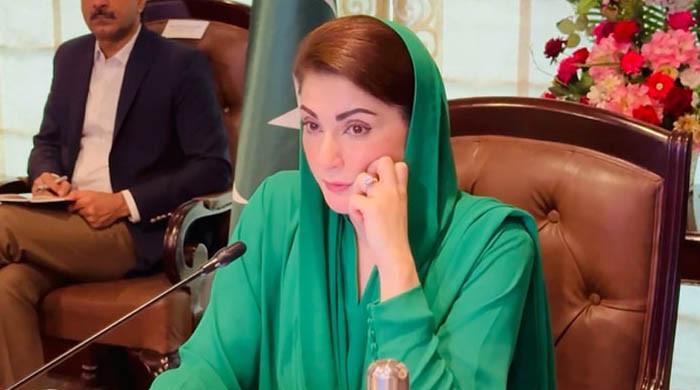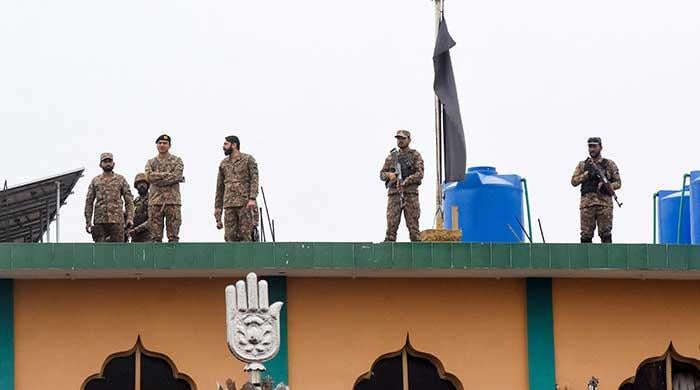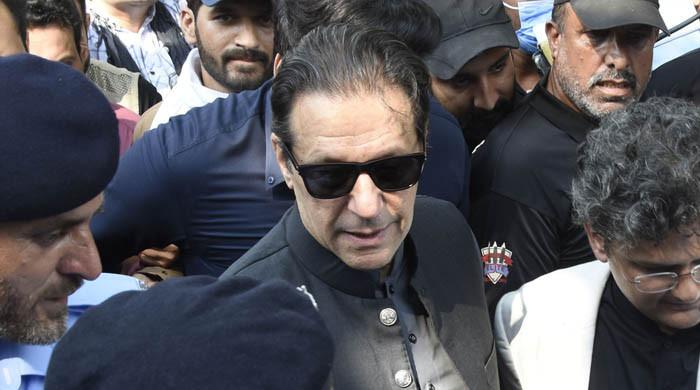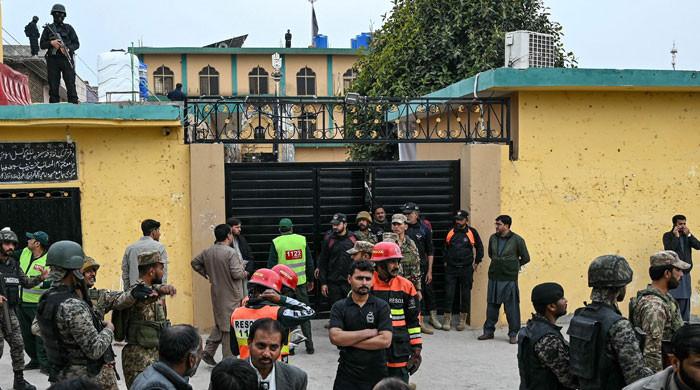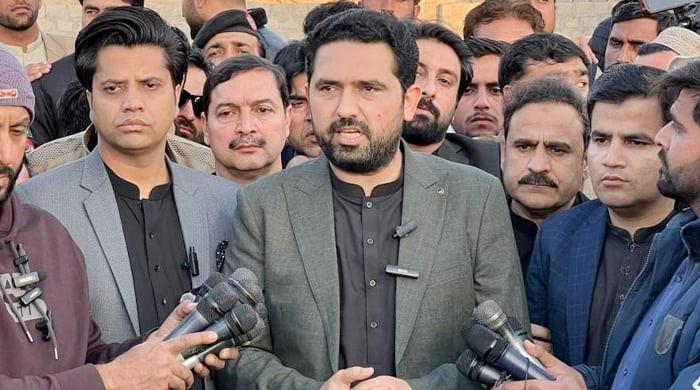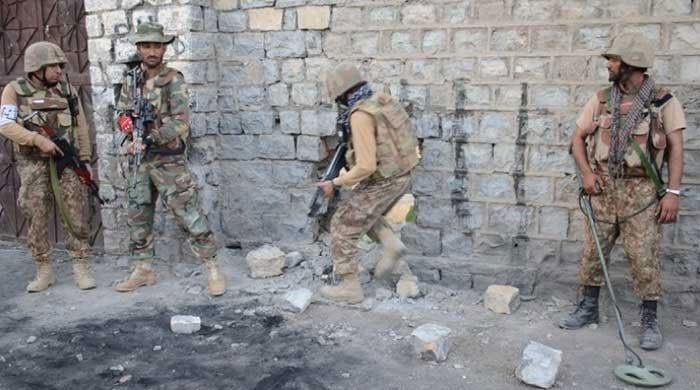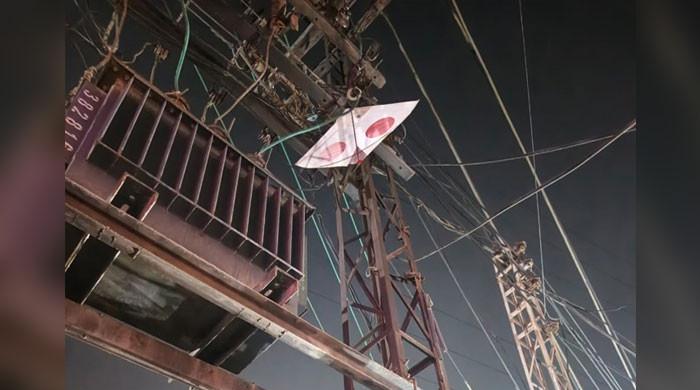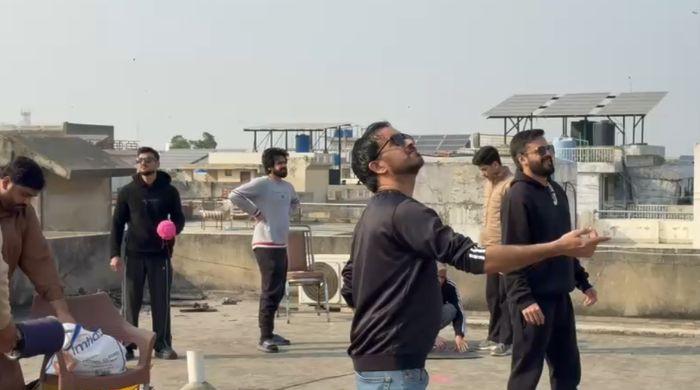TikTok 'considering implications' of SHC directives of banning app in Pakistan
TikTok says it has 'robust policies, processes and technologies' to review and launch action against 'violative content'
June 29, 2021
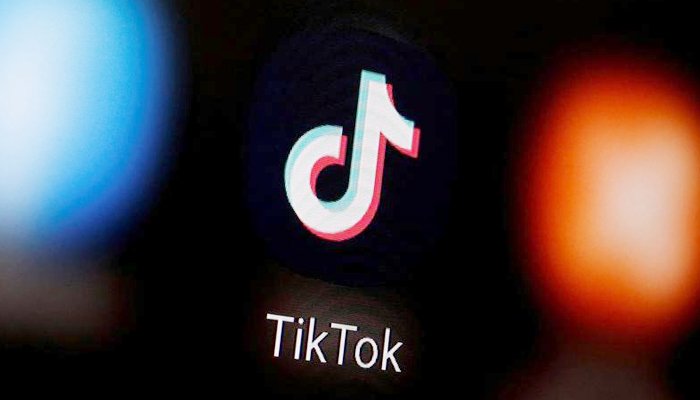
A day after being banned by the Sindh High Court, a TikTok spokesperson said that it is "considering the implications" of the directives on the app.
"We first became aware of the court case and the Sindh High Court's judgement yesterday [Monday], and are currently considering its implications," a spokesperson of TikTok told Geo.tv.
The official repeated that the Chinese app has "robust policies, processes and technologies" to review and launch action against "violative content".
SHC orders suspension of TikTok in Pakistan
SHC on Monday ordered to suspend the video-sharing app TikTok across Pakistan till July 8, nearly three months after the country had lifted a ban imposed on it.
The SHC's ruling came during a hearing, where the court issued a notice to the attorney general of Pakistan and directed him to follow the orders and get the app suspended.
Read more: Pakistan lifts TikTok ban, warns against 'vulgar and objectionable content'
Presenting his arguments in the court, the petitioner's lawyer said Peshawar High Court had earlier banned TikTok as some videos uploaded on the platform are "immoral and against the teachings of Islam."
The lawyer said his client had approached the Pakistan Telecommunication Authority (PTA) before moving the court, however, the PTA did not do anything in this regard.
The court has summoned the parties involved in the case on July 8.
Application filed in SC seeks ban on TikTok
The same day, an application was filed in the Supreme Court seeking a ban on TikTok.
Ali Zeb, a resident of Pakpattan, said that TikTok was promoting crime, with people using drugs and weapons and uploading videos, while the use of TikTok in educational institutions was leading to a bad environment for the students
Read more: PTA directs service providers to ban TikTok
The petitioner said individuals are likewise making recordings of endeavours like an attempt of suicide to get views on TikTok, while the content on it was against the Islamic laws of Pakistan.
The petitioner requested that effective policy-making be carried out by partially shutting down TikTok and ordering the government to set up a mechanism to censor the content.
Ban lifted for the second time
Back in April, Pakistan, for the second time, had officially lifted a ban on China-based ByteDance's app TikTok consequent to a local high court's order.
This was done almost a month after the same judicature had directed the state-run telecommunication authority to "immediately block access" to the short-form video-sharing service.
However, the PTA had also issued a stern warning to TikTok against "vulgar and objectionable content", which it was told to remove.
Read more: TikTokers angry, devastated; call TikTok ban a blow to creative freedoms
The "PTA has issued directions to the service providers to unblock access to the TikTok App", the authority said in a press release shared on Twitter.
"However, the TikTok App management has been told to ensure that vulgar and objectionable content are to be made inaccessible in accordance with the PECA provisions and directions of the Honorable Court," it warned.
TikTok appoints focal person to focus on 'immoral content'
The court in Peshawar was told during the hearing on April 1 that TikTok had appointed a focal person to focus on "immoral content" and what action should be taken in that regard.
PHC Chief Justice Qaiser Rashid Khan had told the PTA's director-general that the body should have a system that could differentiate between "good and bad".
"When PTA takes action [against immoral content], people will not upload such videos," Justice Qaiser had said, to which the latter said the authority had spoken to TikTok to block repeat offenders.
The PHC had then ordered the PTA to "open TikTok but immoral content should not be uploaded", asking the official to present a detailed report on the matter during the next hearing scheduled for May 25.




